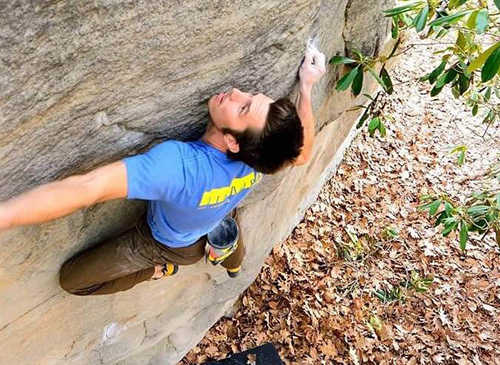When Reid Hannon, senior director of research and development at Philips Ultrasound in Reedsville, ran into technology and manufacturing problems during COVID last year, he and the Philips team knew exactly where to turn.
The Penn State alum says being located in the Happy Valley area puts the Philips site in a perfect conjunction of “small company culture and global resources and assets.” He says the confluence of livability and assets has far-reaching benefits for the company.
First, it makes hiring and retention easier. “This place is sticky,” he says. “People move here and they want to stay here. They want to put down roots.” Second, it also gives the company ready access to some of the world’s top researchers and materials labs, just a few minutes away.
Which brings us back to the COVID challenge. “During 2020, we were going through a tremendous growth curve,” says Hannon. “We’d doubled the size of the facility and taken on some manufacturing normally done at our Massachusetts facility. In the middle of all this growth, the shutdown happened and many of our engineers were working remotely. We quickly determined a need for some unique materials characterization support to help us troubleshoot several complex interactions. The need was urgent and time-sensitive. We were experiencing a steep ramp in demand as our products were being used in the diagnosis and monitoring of COVID. We needed to produce and ship our ultrasound equipment to both domestic and worldwide customers starting in the early days of the pandemic.”
“This place is sticky,” he says. “People move here and they want to stay here. They want to put down roots.”
Hannon turned to David Fecko, director of Materials Research Institute (MRI) Industry Collaborations at Penn State. “We’ve had a relationship with MRI for about five years,” Hannon says. “They have been a durable, reliable resource when needed.”
Together, Hannon’s team at Philips and the MRI team came up with some very innovative ways to non-destructively test components and assemblies after undergoing highly-accelerated environmental tests. This, in combination with other materials analysis, provided the evidence and confidence that products would be durable and of high quality under harsh-use conditions. Soon, the new products were heading to hospitals, surgical suites and mobile clinics all over the world.
“They did, and they did it safely,” Hannon says. “That’s the type of talent that MRI has. We’re working with tight deadlines, driven by revenue and high standards of quality, and they were able to jump in and help in a very constructive, beneficial way.”
He adds, “It’s refreshing working with Penn State, to come and ask for help and have it be treated with urgency. With their help, we were able to get our Pennsylvania-manufactured transducers out to those in need worldwide.”
Hannon says Philips’ ongoing collaboration with MRI has also opened up a talent funnel for future hires.
“This area is great for recruiting. People fall in love with Happy Valley even if they aren’t from here. They want to stay here. Our facility is at the base of Seven Mountains on purpose. We are centrally-located for people living in State College as well as Mifflin and Juniata Counties. We’ve created a culture of inclusion — a small company culture connected to global assets and resources. People want to work here. Our retention is quite good and we want to continue to get even better.”
Cara Aungst writes about industry, innovation and how Happy Valley ideas change the world. She can be reached with story ideas and comments at Cara@AffinityConnection.com.





